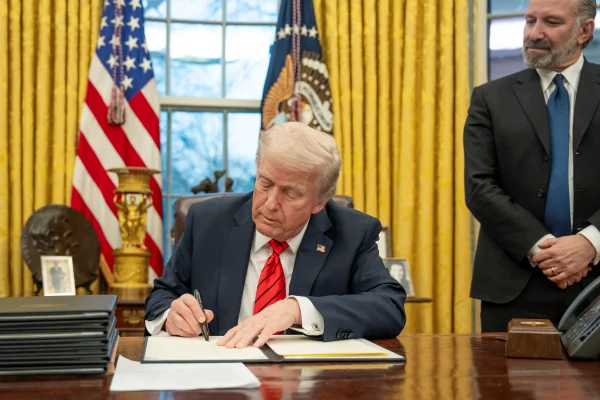Update on Syria
The Syrian Crisis began with the onset of civil uprisings within the nation in March, 2011, following the Arab Spring. Rebel groups like the Free Syrian Army soon began fighting with Bashar al-Assad’s dictatorial regime for control of the nation. Syria’s civil war has led to the displacement of 6.5 million people. Over 100,000 have died. The use of chemical weapons against Syrian citizens on August 21, 2013 changed everything.
After having drawn a “red line” at the use of chemical weaponry in the Syrian conflict, President Obama was poised to order strategic air strikes against Syria. However, the call for a military strike and the ensuing backlash of the American public and Congress, along with the absence of support of the United Kingdom left President Obama in an untenable position. He was forced to put the issue to a Congressional vote. Had it occurred, President Obama would not have succeeded in obtaining Congressional support for a strike. He was left with a permanent stain on his administration.
Instead of a military strike, Syria’s ally Russia proposed a new plan: Syria would agree to allow the United Nations to inspect and destroy all its chemical weaponry. So far, it has worked.
Chemical Weapons Destruction
Michael Luhan, a spokesperson for the Organisation for the Prohibition of Chemical Weapons (OPCW) said on October 23 that the Joint Mission of the United Nations and the OPCW to destroy all chemical weapons material and equipment in Syria has visited 18 of the 23 chemical weapons sites reported by the Syrian government. The joint U.N.-OPCW mission is the first of its kind, and the OPCW this month won the Nobel Peace Prize for combating chemical weaponry.
According to the U.N. News Centre release “Syria: joint OPCW-UN chemical weapons team reports visits to nearly all declared sites,” Mr. Luhan stated that Syria’s “interaction with UN remains excellent and cooperation from Syrian authorities complete,” while speaking during a press conference in The Hague.
He further said that the U.N. and OPCW team is focused on destroying the “critical equipment” crucial to chemical weapons production, the machinery that runs the “mixing and filling units” of a production plant. Without this equipment, production of chemical weaponry becomes impossible.
As reported in the same U.N. brief, Mr. Luhan reported that the methods of destruction of this equipment are “low tech, quick, and cheap.” The methods include filling equipment with concrete or smashing machinery. With so many of the chemical weapons sites rendered inoperable, Syria no longer has the ability to manufacture chemical arms. The U.N.-OPCW mission expects to meet the November 1 deadline for the completion of its task in Syria.
In another facet of this undertaking, Norway rejected on October 25 the United States request that it help destroy Syria’s chemical weapons.
Last month, the U.S. government asked Norway, a NATO-member, and several other nations to aid in the destruction of Syrian chemical arms.
In the Reuters article “Norway rejects U.S. request to destroy Syrian chemical arms,” Alister Doyle reports that the Norwegian Foreign Ministry issued a statement saying the nation had given “serious and thorough consideration” to the request but did not feel that it was able to comply “due to time constraints and external factors, such as capacities, regulatory requirements.”
Geneva Peace Talks
The United Nations Special Envoy to Syria, Lakhdar Brahimi, has called for Iran to attend a series of peace-talks planned in Geneva. Expected to take place in late November, the talks are aimed at finding a resolution to the ongoing conflict in Syria.
The addition of Iran to the conference could cause discord among Gulf Arab States. Saudi Arabia, for example, supports the Syrian rebel forces. Conversely, Iran’s government supports Bashar al-Assad’s regime. Saudi Arabia has further been concerned by the recent hints of reconciliation between Iran, a rival nation, and the United States.
According to Update One of the Reuters article “UN Syria envoy says Iran should join Geneva peace talks -Press TV,” Mr. Brahimi stated in a news conference on October 26 that Iran’s attendance at the Geneva talks would be “natural and necessary as well as fruitful.”
The United States, however, wants Iran to issue public support for a 2012 statement that called for a transitional authority to take over power in Syria before it can participate in the conference.
Speaking with Mr. Brahimi in the news conference, Iran’s Foreign Minister, Mohammad Javad Zarif, said that the nation would attend the Geneva talks if it was invited, as reported in the same Reuters article.
However, Iran has also refused any preconditions for taking part in the talks.
Polio Scare
Fearing a polio outbreak in Syria and the surrounding region, United Nations officials announced on October 25 a plan to vaccinate over 10 million children in the Middle East. 2.5 million will be vaccinated in Syria, where the polio virus has recently reappeared.
Reports of polio among a group of children in the eastern Syrian city of Deir al-Zour first surfaced on October 17. The virus has in past years been confined to Nigeria, Afghanistan, and Pakistan.
Due to the ongoing civil war, Syria’s public health system has collapsed, and the U.N. is struggling with providing emergency aid to millions of afflicted Syrian citizens.
Led by the UN Children’s Fund (UNICEF) and the World Health Organization, the immunization effort will begin with oral doses of the polio vaccine in Deir al-Zour and spread through the region in concentric geographic circles, eventually reaching into Iraq, Turkey, Jordan, Israel, Palestine, and Egypt over the next several weeks.
Syria’s Ministry of Health began its own vaccination campaign on October 24, World Polio Day.
On October 25, Valerie Amos, the U.N. Under-Secretary-General for Humanitarian Affairs and Emergency Relief Coordinator briefed the U.N. Security Council on the humanitarian situation in Syria. According to the U.N. news brief “Security Council’s leadership role vital to end ‘appalling suffering’ in Syria,” Ms. Amos stated that she was “extremely disappointed that we have not been able to make further progress on the ground.”
Also on October 25, Lebanon said it would vaccinate all children under five years of age in the nation against polio after the announcement of the outbreak in Syria. UNICEF will contribute 1.5 million rounds of the polio vaccine to Lebanon.
According to Erika Solomon’s Reuters article “Lebanon to vaccinate children after suspected polio cases in Syria” a WHO representative in Lebanon, Hassan El Bushra called the presence of polio a “regional problem” and “an issue that is of international concern.”







